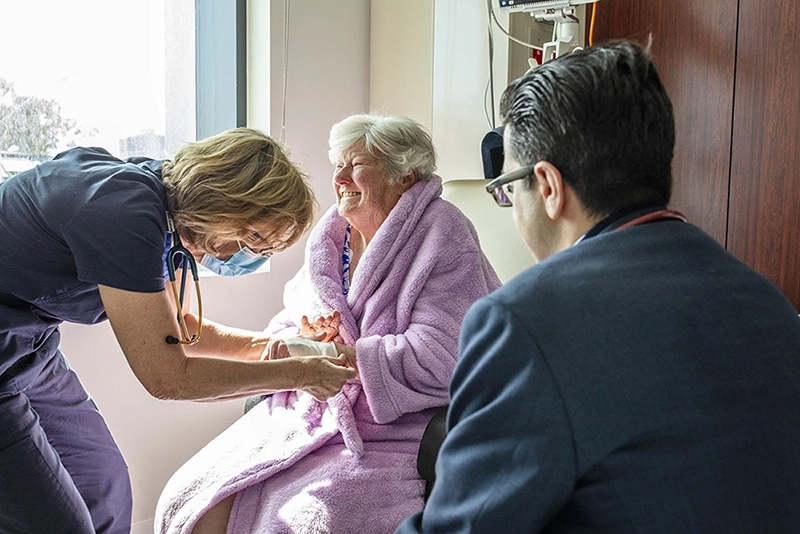عرض هذه الصفحة باللغة العربية
Treatment overview - Arabic
查看此页面的简体中文版本
Treatment overview - Mandarin
Xem trang này bằng tiếng Việt
Treatment overview - Vietnamese
Making treatment decisions
Pancreatic cancer is a complex disease, making treatment planning a complex process with many health specialties. That’s why it’s important to receive treatment at a high-volume centre with centralised care and a multidisciplinary team.
Evidence suggests that specialised centres achieve better outcomes due to the volume of patients and established care pathways.
When making decisions about your treatment, make sure you discuss all the options available with your medical team. This allows you to make an informed decision about your treatment pathway.
Questions to ask your doctor should include:
- What is the stage and grade of my cancer?
- How fast is the cancer growing?
- Am I fit enough to undergo the treatment?
- How quickly can treatment start?
- Is surgery an option to remove the cancer?
- What is the aim of the treatment?
- Will it cure or control my cancer?
- What are the potential side effects of the recommended treatment?
- Will the treatment impact my quality of life?
Treatment team
Your treatment team may involve a diverse group of health professionals, each specialising in different aspects of care to offer comprehensive treatment and support. This team may include:
- General practitioner (GP): Oversees your overall health and coordinates treatment with specialists.
- Gastroenterologist: Specialises in diagnosing and treating diseases of the digestive system.
- Endocrinologist: Specialises in diagnosing and treating hormonal disorders.
- Surgeon (hepatopancreatobiliary): Expert in surgical procedures involving the pancreas and liver.
- Radiation oncologist: Prescribes and coordinates your radiation therapy.
- Medical oncologist: Prescribes and manages your chemotherapy treatment.
- Pancreatic cancer nurse: Provides care and support throughout your treatment, including information and assistance to help manage side effects and navigate the healthcare system.
- Other allied health professionals: Includes social workers, pharmacists, dietitians, and counsellors to support your emotional, social, and holistic needs during treatment.
Understanding treatment options

